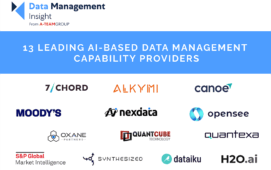Managing counterparty risk has become a much more critical component of a hedge fund’s overall business operations today than it has been in previous years, according to a recently published white paper by Pershing and Aite Group. The report, which is entitled Risk and Reward: Hedge Funds Changing Views on Counterparty Relationships, focuses on the heightened importance of effectively managing counterparty risk and the integral role it plays in partnering with a prime broker.
The joint report highlights best practices that have been implemented by other hedge funds to help address and mitigate counterparty risk. Sang Lee, managing partner at Aite Group, explains: “The current credit crisis has elevated the importance of counterparty risk management in the eyes of many hedge fund managers. Creating a more systematic approach to counterparty risk management will go a long way in restoring market confidence and helping the hedge fund industry recapture its profitability.”
Pershing and Aite Group claim that one of the major drivers for this attention is hedge funds’ concerns about the negative impact of one of their key counterparties default on their obligations. According to the report, more than 50% of respondents reported monitoring counterparty risk on a daily basis and nearly 85% consider it an extremely important or very important business issue.
Moreover, 96% of respondents also cited managing counterparty risk as the number one factor in selecting their prime broker relationships. Concerns about managing counterparty risk two years ago were not a primary issue for most hedge funds, says the report, as 26% of the respondents considered counterparty risk important and 22% viewed it as moderately important.
The report contends that effectively monitoring counterparty risk will continue to be a critical component of a hedge fund’s business operations. The development of a standardised, well documented approach to analysing counterparty risk remains one of the top priorities for the hedge fund community, it claims.
Some of the best practices for proactively managing counterparty risk described by Aite Group and Pershing include leveraging a tri-party account approach to risk management and conducting consistent internal portfolio and risk assessments. They also recommend formalising business processes by outsourcing and installing in-house technology solutions such as portfolio management systems, as well as implementing third party independent valuation technology solutions and service providers supplemented with in-house valuation tools.
Craig Messinger, managing director of Pershing Prime Services, adds: “In order to help ensure continued growth and success, hedge funds of all sizes must continue to invest in and implement the proper internal controls and systematic processes to effectively monitor, manage and mitigate counterparty risk.”
However, the report says that there is no silver bullet for hedge funds when attempting to actively monitor the balance sheets of important counterparties. Most hedge funds currently go through manual intensive processes to keep track of counterparty relationships. “The reality is that despite the industry’s lack of a comprehensive technology platform to fully automate counterparty risk management, hedge funds continue to expand their presence globally and invest in more complex instruments. Reliable counterparty relationships will become even more critical, and continual innovation in terms of technology and services from leading service providers will be key to mitigating the hedge fund industry’s exposure to counterparty risk,” the report states.
Subscribe to our newsletter




